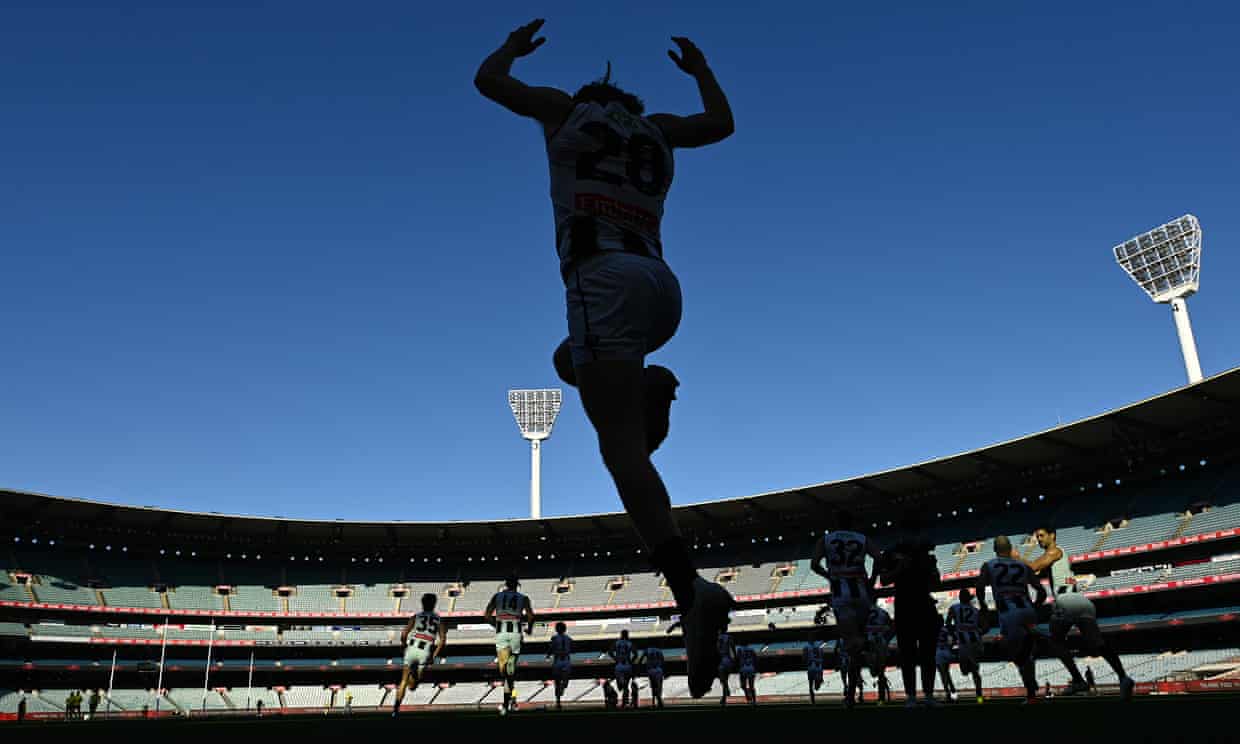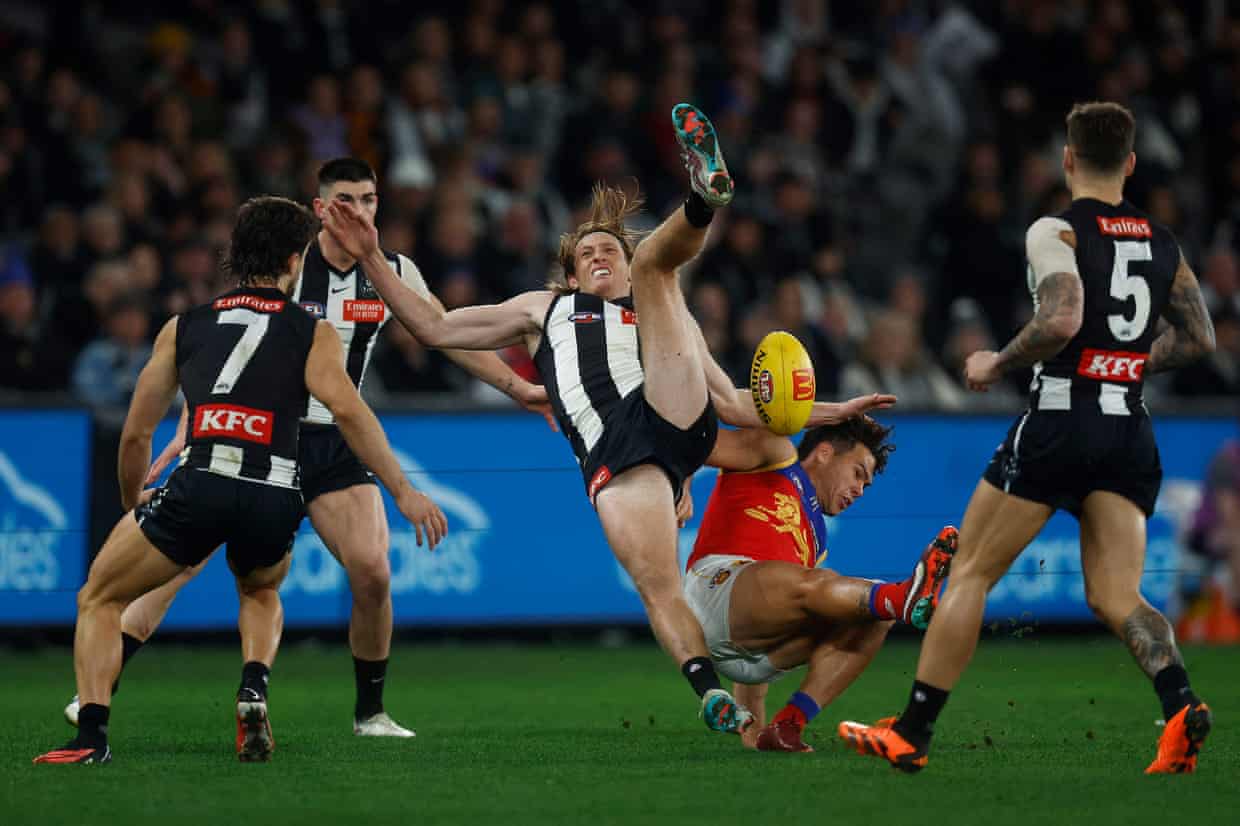The prone to concussions The Collingwood defender gracefully accepted the medical recommendation to retire at age 25, and he comes out looking quite good.
In Short
- Nathan murphy’s retirement from australian football due to concussions reflects evolving perspectives on player health.
- His courageous decision highlights the importance of prioritizing player safety in sports.
- Murphy’s story sparks discussions on the challenges athletes face and the evolving norms in sports culture regarding concussions and retirement.
- His legacy extends beyond the field, shaping conversations about courage and difficult decisions in the football community.
TFD – Delve into Nathan Murphy’s story, a footballer who made a courageous decision to retire due to concussions. His retirement sheds light on evolving perspectives in Australian football regarding player health and safety, prompting discussions on courage and difficult decisions in sports.

Before the Covid pandemic struck, Australian sports were starting to acknowledge the impacts of concussions. Tim Boyle, a former football player for Hawthorn, authored an article titled “The new form of courage may be not to play at all” for The Sunday Age. I recalled of that post on Tuesday morning when Nathan Murphy of Collingwood announced his retirement, as well as when Daniel Venables and Angus Brayshaw retired.
When a football player retires these days, their teammates greet them at an auditorium. Sniffles, trembles, and winding pauses are present. Nowadays, a lot of people read from their iPhone’s Notes area. However, there’s a huge sigh of relief for those who are retiring due to concussions. One must live their life. The world is not just football.
Those that report on and promote the game also offer consolation. Watching Murphy would have been a terrible experience had he kept playing. Watching Paddy McCartin be helped off after suffering a concussion in the most benign of circumstances almost felt like a disgrace. Murphy gave a moving speech about his mother, comparing the rooms following the preliminary final to the scene in Love Actually’s airport. She can now stop worrying about her son suffering permanent brain damage while playing football.
Murphy and his teammates didn’t really celebrate the grand final win from the previous year. He had an appointment with a medical board that was going to make decisions about his future in sports while they were drinking two-handed. He waited outside for half an hour while they deliberated. This is a situation that happens more and more frequently. Eventually, they cleared him to continue playing. But pre-season training sowed further doubts. Physically, there were no concerns. But mentally, he wasn’t ready to fully commit. He had to be all-in. He knew he could no longer be that player. He didn’t want to be that player.
On Monday, his former coach Nathan Buckley talked about a football player who needed a while to establish himself and determine exactly what kind of player he was. In his youth, he had excelled as a cricket player. His ambition was to lead Australia’s batting order. He was attempted higher up the field in his inexperienced football career. But with time, it became evident that he was a staunch defender.
Under Craig McRae, he flourished. He turned as the cornerstone of Collingwood’s exceptional backline. Their defenders would rearrange themselves, work for one another and devour space. Murphy, like all of them, had the ideal ratio of reward to risk. He knew exactly when to drop off, when to man up, and when to block for a teammate. He was dependable and resolute. He allowed the likes of Nick Daicos and Darcy Moore to roam and flourish. In their premiership year, he played 24 matches and was crucial in so many of those close finishes. When Collingwood made a stuttering start to their premiership defence, his absence was sorely felt.

Buckley spoke of a footballer who in many ways was too brave for his own good, who had to be reprogrammed, who had to be taught to protect himself. Murphy received thorough guidance from the coaching staff on how to move his body and that they didn’t expect him to play every game with reckless abandon whenever he suffered a concussion. Murphy would give a nod. And in his very first minute of his return match, he’d hurl himself back into a pack. It was constitutional in him.
There was a time when people encouraged, if not universally revered, bravery like that. On Monday mornings, coaches such as Grant Thomas would go over the tape, identify each player who had withdrew from a game, and perform a review. Almost like a medal of honor, being concussed. Luke Ball described it as “mixed shit.” “Every player who ever played league football did so under the threat of embarrassment, in one form or another, and there is no faster way to achieve it than by demonstrable cowardice,” Boyle wrote. Dermott Brereton, another former Hawthorn forward, recently talked about how he was allowed to return to the game after suffering a concussion. “That was a mark of your manhood,” he said.
These viewpoints are evolving. Clubs are definitely modifying them. It’s not always clear from the analysis and commentary on the sport, especially from its previous hard guys. But such reckless abandonment is no longer non-negotiable. A player with a concussion is not good for himself or his team. And it’s no longer considered weak, or that you’re letting your mates down, if you opt out of football.
Nathan Murphy spent seven years within the system. He received just one vote for Brownlow. It was his only ambition. He was concussed at least ten times. He was not in control of the decision to continue playing, but he took it in stride, laughed, and felt a little relieved. He reminded us that there are other ways to be courageous in football. He emerged with his health, his premiership and the admiration of all who watched him play.
Conclusion
Nathan Murphy’s retirement serves as a poignant reminder of the evolving norms in Australian football, prioritizing player health and safety. His courageous decision prompts discussions on the challenges athletes face and the changing perspectives on concussions and retirement in sports. As we celebrate Murphy’s legacy, we honor his courage and resilience, shaping a brighter future for player well-being in sports.
Connect with us for the Latest, Current, and Breaking News news updates and videos from thefoxdaily.com. The most recent news in the United States, around the world , in business, opinion, technology, politics, and sports, follow Thefoxdaily on X, Facebook, and Instagram .
